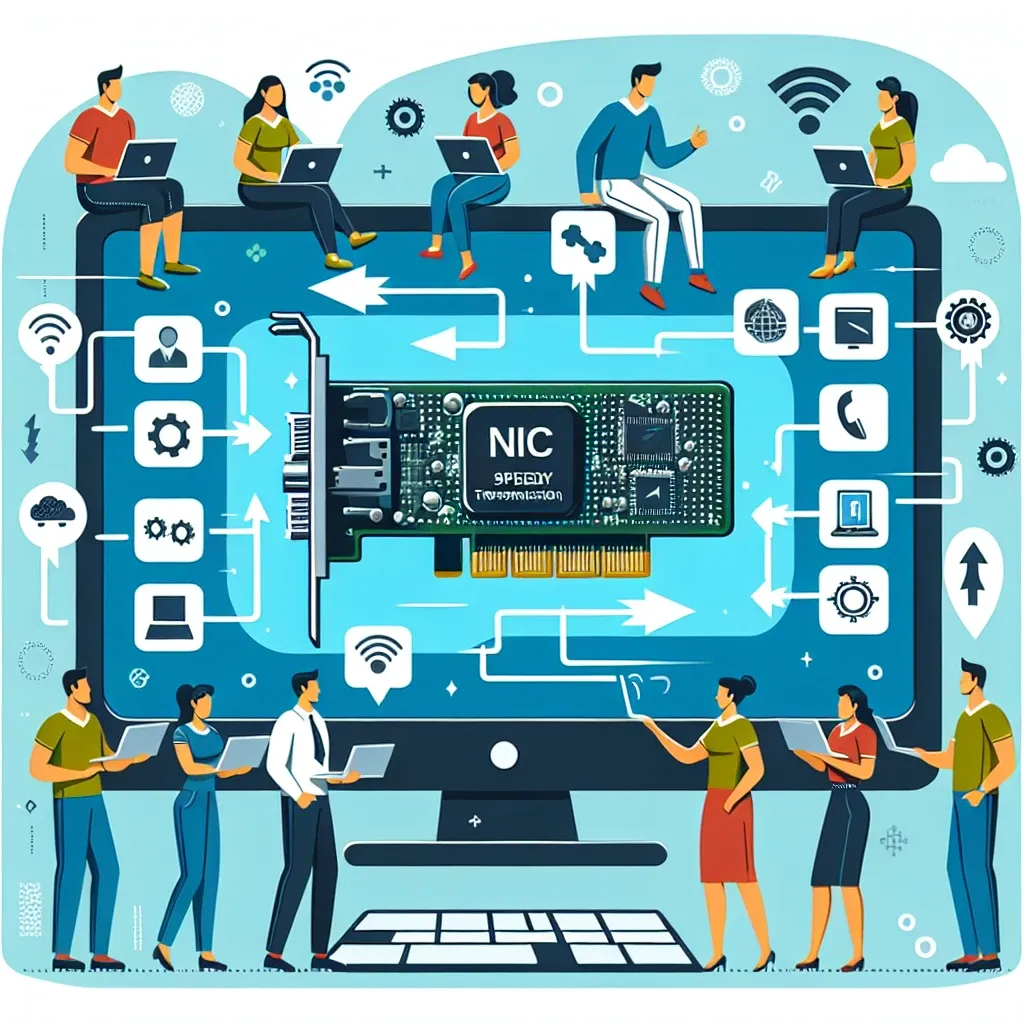In the domain of computer networking, a Network Interface Card (NIC) plays a pivotal role. This hardware component, sometimes referred to as a network adapter, connects a computer to a network, allowing seamless communication with other devices. Understanding the advantages of using a NIC can help individuals and businesses make informed decisions about their networking infrastructure.
Below is a table summarizing the primary benefits of using a NIC:
| Benefits | Description |
|---|---|
| Speed | Significant improvement in data transfer speeds |
| Security | Enhanced network security features |
| Control | Better network management capabilities |
| Reliability | Increased stability and reliability in network connections |
| Scalability | Adaptability to growing network demands |
Speed
One of the most profound advantages of using a NIC is its ability to vastly increase data transfer speeds. With the advent of Gigabit and 10-Gigabit Ethernet NICs, data can be transmitted at lightning-fast rates, minimizing latency and improving overall network performance. Fast internet speeds are essential for tasks such as streaming high-definition videos, online gaming, and transferring large files.
Security
Enhanced security is another critical benefit of using NICs. Many modern NICs come equipped with advanced security features, such as encryption and authentication protocols, which help protect sensitive data from unauthorized access and cyber threats. This is particularly important for enterprises where data breaches can have severe financial and legal repercussions.
Control
NICs provide better control over network management. Network administrators can configure settings, monitor traffic, and manage network resources more efficiently using NICs. This control extends to implementing Quality of Service (QoS) rules to prioritize certain types of traffic, ensuring that critical applications receive the necessary bandwidth.
Reliability
Reliability is a crucial aspect of any network. NICs contribute to stable and consistent network connections, reducing the risk of disconnections and downtime. This reliability is particularly important for businesses that rely on continuous network access to operate effectively.
Scalability
The adaptability of NICs to growing network demands makes them an excellent choice for scalable network solutions. As businesses expand, their networking needs evolve, and NICs can be upgraded or replaced to accommodate higher data transfer rates and additional network features without overhauling the entire network infrastructure.
Improved Data Transfer Efficiency
NICs enhance data transfer efficiency by reducing the load on the central processing unit (CPU). By offloading network-related tasks to the NIC, the CPU can focus on other critical processes, improving overall system performance. This is especially beneficial for servers and high-performance computing environments.
Compatibility with Various Network Types
NICS are highly versatile and compatible with different network types, including Ethernet, Wi-Fi, and Fiber Optics. This compatibility ensures that NICs can be seamlessly integrated into various networking environments, providing consistent performance across different network infrastructures.
Enhanced Multimedia Performance
For multimedia applications such as video conferencing, online gaming, and streaming, NICs play an essential role in ensuring smooth and high-quality performance. The high data transfer rates and low latency provided by NICs help minimize buffering and lag, resulting in a better user experience.
Cost-Effectiveness
Investing in high-quality NICs can be a cost-effective solution in the long run. By improving network efficiency and performance, NICs can reduce operational costs associated with network downtime, maintenance, and upgrades. Additionally, they extend the lifespan of network devices by ensuring optimal performance.
Future-Proofing the Network
As technology continues to evolve, having an up-to-date NIC ensures that a network can support future advancements. Modern NICs are designed to be compatible with the latest network standards and technologies, providing a future-proof solution for individuals and businesses looking to stay ahead in the digital age.
Conclusion
In conclusion, Network Interface Cards (NICs) offer numerous advantages that enhance the overall performance, security, and reliability of computer networks. Whether for personal use or business applications, investing in quality NICs can significantly improve data transfer speeds, provide robust security features, and offer better control and scalability. As networking demands continue to grow, NICs will remain an essential component in building efficient and effective network infrastructures.

